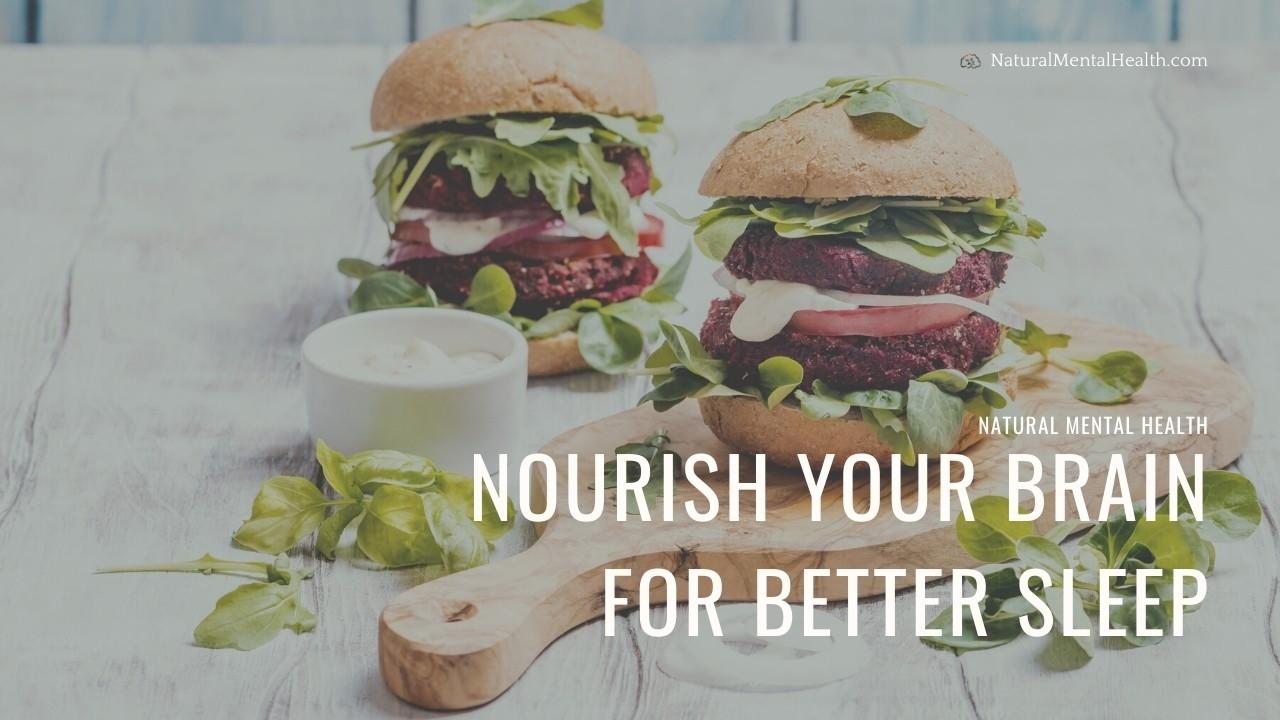
Nourish Your Brain for Better Sleep
Mar 19, 2020Nourish Your Brain for Better Sleep
What you eat--and when!--can have a significant impact on your ability to fall asleep and stay asleep. This may be more obvious for things like coffee and energy drinks, but there are other food items and the timing of when you eat them that may be helpful or detrimental to your sleep.
The nourishment steps and food list below can help you refine your diet so that it supports your sleep. Pair these resources with The Resilient Diet and you'll have nourishment that fuels a good night's sleep.
Three Nourishing Steps to Support Your Sleep
Use the three steps below to change your food habits and improve your sleep. Don't feel obligated to put all of them into action immediately. Go step by step, take some time, and put each into action with confidence and commitment. You can do it!
First: Timing Is Everything
While eating balanced and nutritious meals throughout the day will support your sleep, it's not just the content of the meals that is important. When you eat also impacts the quality of your sleep. If possible, eat early in the day and eat light overall. Ideally, you would have your largest meal at mid-day, when your body is most geared toward digestion. Eat lighter at the evening meal, but eat enough that you don’t have to snack right before bed. Eating more complex carbs (e.g. whole grains, beans, root vegetables) and a small amount of protein at the evening meal will help stabilize your blood sugar, allowing tryptophan to enter the brain and make the calming chemical serotonin.
Second: Set Your Foundation
The Resilient Diet sets a nourishment foundation that can support your sleep. The Resilient Diet is a key part of setting your foundations for mental health. Pair the it with the food list linked below.
Third: Add Sleep Enhancing Foods and Limit Sleep Disrupting Foods
Along with The Resilient Diet, you can eat foods that can help support your sleep. There are also foods that you may want to stay away from near bedtime as they may be disrupting your sleep.
Download the food list and keep it in a visible spot so you can remember what to add and what to reduce. Download the food list here.
Sleep Enhancing Foods
- Cherries or cherry juice
- Almonds and walnuts
- Green leafy vegetables
- Chickpeas
- Turkey
- Sweet potatoes
- Bananas
Sleep Disrupting Foods
- Alcohol
- Caffeine
- High fat foods
- Spicy foods
- Chocolate
- High sugar foods
- Energy drinks
Bonus: A warm glass of milk (dairy or non-dairy) before bed may help sleep. Add a small amount of cinnamon, cardamom, or nutmeg for an extra soothing drink.
More about caffeine: Caffeine's effects can last for 12 hours or more, so even if you stop before noon, it can still affect sleep. Consider giving caffeine up completely until your sleep improves.
More about alcohol: Like caffeine, it's fine to have modest amounts of alcohol (usually defined as one drink daily for women and two for men) so long as you have no problems sleeping. But, while having a drink right before bed might make you sleepy, it can cause problems 2-3 hours later when it wears off.
RELATED ARTICLE
Diet, Supplements, and Herbs to Calm Your System
Optimizing your brain to support mental health isn't as complex as some experts want you to believe. When you understand the basic functions of your brain, then you can more confidently, effectively, and lovingly care for it. Learn more.








